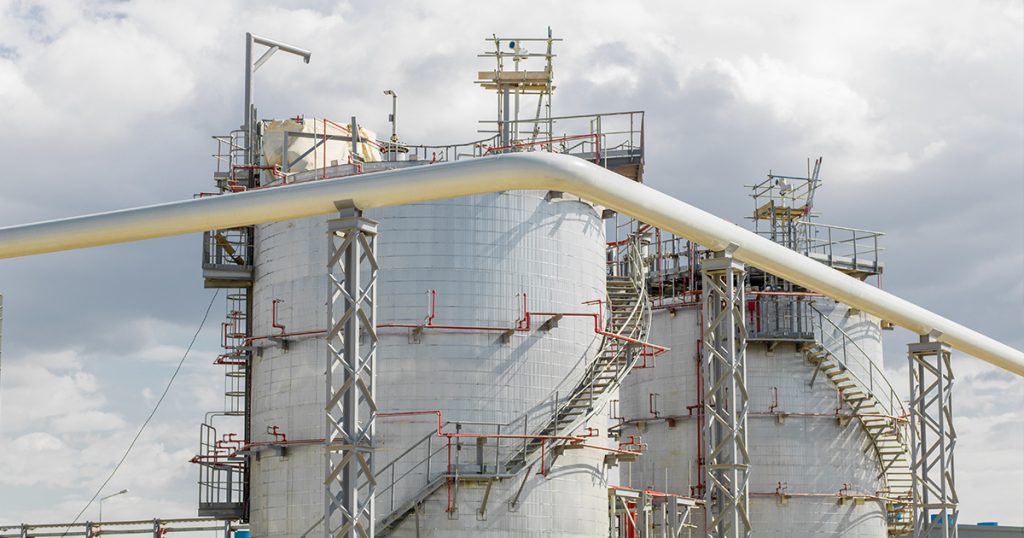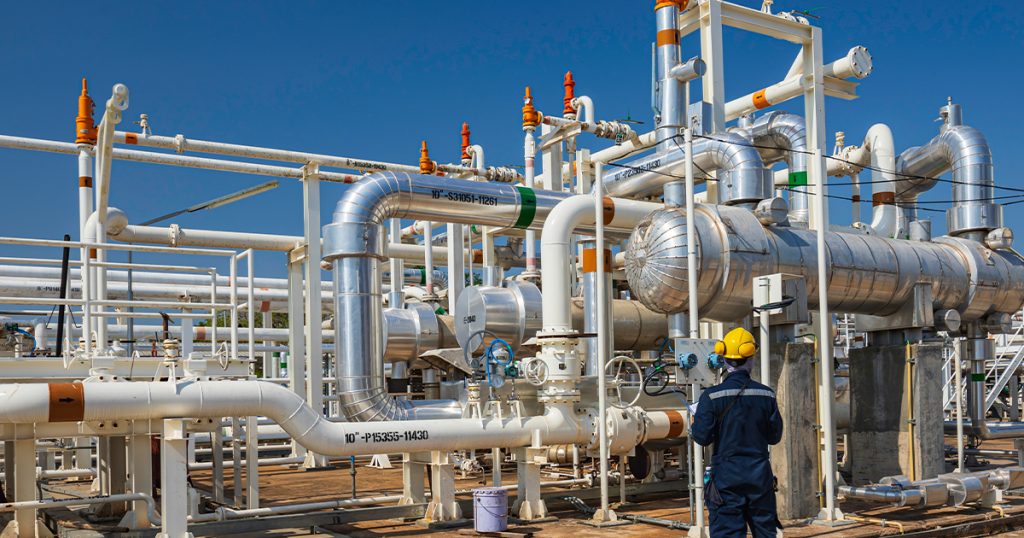In Nigeria’s rapidly expanding energy sector, Gas Refineries erection commissioning in Nigeria has become a defining process for sustainable industrial growth. As the nation pushes for greater self-reliance in refining and gas processing, successful commissioning ensures that newly built refineries and gas plants start up safely, meet design capacity, and operate at peak efficiency from day one.
Commissioning in the gas refinery sector is more than a procedural step, it’s a structured and highly technical operation that bridges the gap between construction and full-scale production. It ensures that all systems, from compressors and turbines to control panels and piping networks, function as designed under real operating conditions.
At Swamina International, our expertise in refinery erection and commissioning helps Nigerian projects meet global performance benchmarks. From mechanical installation to final performance testing, our teams follow industry-leading practices rooted in safety, precision, and reliability.

The Strategic Importance of Erection and Commissioning
Erection and commissioning form the backbone of industrial readiness. Erection refers to assembling and installing the mechanical, electrical, and structural components of a plant. Commissioning, on the other hand, involves validating and testing these systems under operational conditions.
The two processes together ensure that all rotating and static equipment perform in sync with the process design, safety systems, and control architecture. This step is vital for mitigating operational risks, preventing premature equipment wear, and guaranteeing that the refinery achieves its target output within the projected timeline.
Laying the Foundation: The Erection Phase
During the erection stage, heavy machinery and structural components such as pressure vessels, exchangers, columns, and reactors are installed. Skilled engineers and technicians work meticulously to align pumps, mount compressors, weld pipelines, and set up the control instrumentation network.
Precision is key, even the slightest misalignment can cause vibration, inefficiency, or failure. Each installation undergoes multiple quality checks, torque verifications, and compliance audits. Safety barriers and scaffolding are inspected daily, ensuring the erection environment remains hazard-free.
Erection also involves civil foundation checks, load-bearing analysis, and equipment calibration, critical steps before moving toward system integration and pre-commissioning.
Transitioning to Commissioning: The Heart of Operational Readiness
Once the erection phase concludes, systems move into commissioning, a detailed process of testing, tuning, and verification. Commissioning ensures that mechanical, electrical, and control systems communicate flawlessly and perform under simulated and real operating conditions.
This phase includes pre-startup inspections, loop checks, performance testing, leak tests, and emergency response trials. Pressure and temperature calibrations are validated to ensure optimal throughput and safety compliance.
The goal is not merely to “turn on” a refinery, but to achieve stable, safe, and efficient operation across all integrated systems, from feed handling and gas compression to product storage and dispatch.
Compliance, Safety, and Environmental Stewardship
Modern commissioning must meet stringent international standards such as ASME, API, and ISO. In Nigeria, this compliance extends to local environmental and safety regulations designed to protect communities and ecosystems near refineries.
Firefighting systems, emission control units, and emergency shutdown mechanisms are tested extensively. Gas leak detectors, flare stacks, and pressure relief systems are all verified before startup approval.
Swamina International places particular emphasis on Hazard and Operability (HAZOP) studies and Job Safety Analyses (JSA), ensuring each commissioning phase adheres to global best practices for safety and sustainability.
Reliability Testing and Performance Validation
Once all systems are online, the refinery undergoes performance testing. This phase determines whether actual operating conditions align with design expectations. Engineers monitor parameters such as flow rates, temperatures, and vibration levels while adjusting settings for peak performance.
Older or refurbished refineries may also undergo Gas Refineries erection commissioning maintenance, where existing systems are recalibrated or upgraded to match modern operational standards. Pumps, turbines, and compressors are balanced and lubricated, ensuring longevity and consistent performance.
Specialized Contractor Support and Expertise
Partnering with Gas Refineries erection commissioning contractors provides vital technical depth and operational precision. These contractors bring specialized experience across multi-disciplinary areas, from electrical integration and automation setup to mechanical alignment and system verification.
Swamina International’s teams are globally recognized for their expertise in refinery erection and commissioning across Africa and the Middle East. Their projects emphasize not only safe plant startup but also long-term operational excellence and energy efficiency.
Overhauling and System Optimization
Periodic upgrades, known as Gas Refineries erection commissioning maintenance contractor services, ensure that the refinery continues to operate within its designed parameters. Overhauling focuses on key equipment such as compressors, heat exchangers, and turbines, restoring them to original efficiency or better.
These services often involve vibration analysis, performance audits, and system recalibration. By integrating predictive maintenance technologies, refineries can identify potential failures before they impact operations, reducing downtime and extending asset lifespan.

Integration of Installation, Shutdown, and Overhauling
A modern gas refinery cannot function efficiently without synchronization between installation, shutdown, and overhauling activities. Gas Refineries erection commissioning involves the seamless integration of all these processes.
When scheduled Rotary Equipment Shutdowns are required, the focus is on preventive maintenance, safety inspections, and component replacements. During shutdowns, the plant’s machinery and control systems are examined in detail to prevent future disruptions once production resumes.
Similarly, overhauling activities complement commissioning by ensuring that older systems meet the same reliability standards as newly installed equipment.
Workforce Training and Knowledge Transfer
The success of any commissioning project depends heavily on skilled personnel. Engineers, technicians, and operators undergo comprehensive training to understand operational procedures, emergency responses, and safety protocols.
Swamina International emphasizes on-site and classroom-based training programs to enhance understanding of process logic, instrumentation control, and performance optimization. Knowledge transfer ensures that refinery teams can manage post-commissioning operations independently and effectively.
Project Documentation and Handover
A well-documented commissioning process is crucial for both compliance and continuity. Every inspection, test, and calibration record is compiled into structured reports. Equipment manuals, vendor certificates, and as-built drawings form part of the final handover package. In large-scale Gas Refineries erection commissioning in Nigeria, this documentation serves as a long-term reference for maintenance planning, troubleshooting, and regulatory audits, ensuring transparency and traceability across the entire refinery lifecycle.
Continuous Improvement and Operational Efficiency
The commissioning process does not end with startup. Post-commissioning analysis identifies opportunities to optimize energy consumption, reduce emissions, and enhance equipment reliability.
Through data-driven performance monitoring, Swamina International assists clients in maintaining steady operational excellence. Whether through predictive maintenance systems or automation enhancements, continuous improvement ensures that Nigeria’s gas refineries remain globally competitive.
FAQs and Industry Insights
1. What is erection and commissioning?
Erection refers to the installation and assembly of mechanical and structural components of a refinery. Commissioning involves testing, verification, and certification of all installed systems before commercial operation begins.
2. What is the difference between erection and launching?
Erection involves setting up physical structures and equipment, while launching refers to initiating operations or beginning the first live process within the system after successful commissioning.
3. What is the difference between commissioning and installation?
Installation focuses on setting up equipment and systems, while commissioning ensures those installations perform safely, efficiently, and as per design specifications through testing and validation.
4. Why is it called commissioning?
The term “commissioning” originates from the idea of “putting into service.” It marks the formal transition from construction to operation, where the facility is deemed ready for production.
5. What is the commissioning process?
The commissioning process involves detailed inspection, functional testing, calibration, performance verification, and documentation to ensure systems are ready for safe and efficient operation.
6. What are erection charges?
Erection charges cover labor, materials, supervision, and tools required for the assembly, alignment, and installation of machinery and structures during the project’s setup phase.
7. What is commissioning and erection?
Erection is the assembly and installation phase, while commissioning verifies and validates the operation of all systems. Together, they ensure a smooth and compliant transition from construction to production readiness.
Driving Nigeria’s Energy Future
Nigeria’s energy ambitions depend on reliable and safe refinery operations. Gas Refineries erection commissioning in Nigeria plays a pivotal role in ensuring that these facilities meet world-class safety, quality, and performance standards.
By combining mechanical precision, environmental compliance, and continuous training, Swamina International delivers solutions that go beyond startup, laying the groundwork for sustained energy production, profitability, and national growth.
To learn more about our refinery and plant commissioning expertise, visit Swamina International’s services page.
